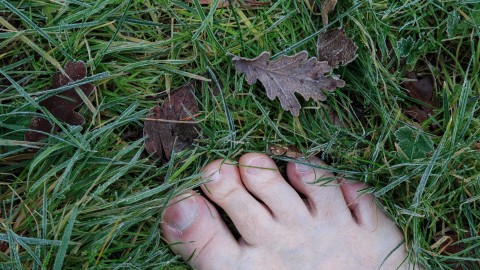Constipation occurs when bowel movements become less frequent and stools become difficult to pass. It happens most often due to changes in diet or routine, or due to inadequate intake of fiber. Constipation is generally described as having fewer than three bowel movements a week. Though occasional constipation is very common, some people experience chronic constipation that can interfere with their ability to go about their daily tasks. Chronic constipation may also cause people to strain excessively in order to have a bowel movement.
Overview
What is constipation?
Having fewer than three bowel movements a week is, technically, the definition of constipation. However, how often you “go” varies widely from person to person. Some people have bowel movements several times a day while others have them only one to two times a week. Whatever your bowel movement pattern is, it’s unique and normal for you – as long as you don’t stray too far from your pattern.
Regardless of your bowel pattern, one fact is certain: the longer you go before you “go,” the more difficult it becomes for stool/poop to pass. Other key features that usually define constipation include:
- Your stools are dry and hard.
- Your bowel movement is painful and stools are difficult to pass.
- You have a feeling that you have not fully emptied your bowels.
How common is constipation?
You are not alone if you have constipation. Constipation is one of the most frequent gastrointestinal complaints in the United States. At least 2.5 million people see their doctor each year due to constipation.
How does constipation happen?
Constipation happens because your colon absorbs too much water from waste (stool/poop), which dries out the stool making it hard in consistency and difficult to push out of the body.
To back up a bit, as food normally moves through the digestive tract, nutrients are absorbed. The partially digested food (waste) that remains moves from the small intestine to the large intestine, also called the colon. The colon absorbs water from this waste, which creates a solid matter called stool. If you have constipation, food may move too slowly through the digestive tract. This gives the colon more time – too much time – to absorb water from the waste. The stool becomes dry, hard, and difficult to push out.
Symptoms
Signs and symptoms of chronic constipation include:
- Your stools are dry and hard.
- Your bowel movement is painful and stools are difficult to pass.
- You have a feeling that you have not fully emptied your bowels.
Constipation is one of the most frequent gastrointestinal complaints People of all ages can have an occasional bout of constipation. There are also certain people and situations that are more likely to lead to becoming more consistently constipated (“chronic constipation”). These include:
- Older age. Older people tend to be less active, have a slower metabolism and less muscle contraction strength along their digestive tract than when they were younger.
- Being a woman, especially while you are pregnant and after childbirth. Changes in a woman’s hormones make them more prone to constipation. The baby inside the womb squishes the intestines, slowing down the passage of stool.
- Not eating enough high-fiber foods. High-fiber foods keep food moving through the digestive system.
- Taking certain medications (see causes).
- Having certain neurological (diseases of the brain and spinal cord) and digestive disorders (see causes).
Causes
Constipation happens because your colon absorbs too much water from waste (stool/poop), which dries out the stool making it hard in consistency and difficult to push out of the body.
To back up a bit, as food normally moves through the digestive tract, nutrients are absorbed. The partially digested food (waste) that remains moves from the small intestine to the large intestine, also called the colon. The colon absorbs water from this waste, which creates a solid matter called stool. If you have constipation, food may move too slowly through the digestive tract. This gives the colon more time – too much time – to absorb water from the waste. The stool becomes dry, hard, and difficult to push out.
Common lifestyle causes of constipation include:
- Eating foods low in fiber.
- Not drinking enough water (dehydration).
- Not getting enough exercise.
- Changes in your regular routine, such as traveling or eating or going to bed at different times.
- Eating large amounts of milk or cheese.
- Stress.
- Resisting the urge to have a bowel movement.
Medications that can cause constipation include:
- Strong pain medicines, like the narcotics containing codeine, oxycodone (Oxycontin®) and hydromorphone (Dilaudid).
- Nonsteroidal anti-inflammatory drugs, like ibuprofen (Advil®, Motrin®) and naproxen (Aleve).
- Antidepressants, including the selective serotonin reuptake inhibitors (like fluoxetine [Prozac]) or tricyclic antidepressants (like amitriptyline [Elavil]).
- Antacids containing calcium or aluminum, such as Tums.
- Iron pills.
- Allergy medications, such as antihistamines (like diphenhydramine [Benadryl]).
- Certain blood pressure medicines, including calcium channel blockers (like verapamil [Calan SR], diltiazem [Cardizem] and nifedipine [Procardia]) and beta-blockers (like atenolol [Tenormin]).
- Psychiatric medications, like clozapine (Clozaril) and olanzapine (Zyprexa).
- Anticonvulsant/seizure medications, such as phenytoin and gabapentin.
- Antinausea medications, like ondansetron (Zofran).
Medical and health conditions that can cause constipation include:
- Endocrine problems, like underactive thyroid gland (hypothyroidism), diabetes, uremia, hypercalcemia.
- Colorectal cancer.
- Irritable bowel syndrome (IBS).
- Diverticular disease.
- Outlet dysfunction constipation. (A defect in the coordination of pelvic floor muscles. These muscles support the organs within the pelvis and lower abdomen. They are needed to help release stool.)
- Neurologic disorders including spinal cord injury, multiple sclerosis, Parkinson’s disease, and stroke.
- Lazy bowel syndrome. The colon contracts poorly and retains stool.
- Intestinal obstruction.
- Structural defects in the digestive tract (like fistula, colonic atresia, volvulus, intussusception, imperforate anus, or malrotation.)
- Multiple organ diseases, such as amyloidosis, lupus, and scleroderma.
- Pregnancy.
Complications
- Swollen, inflamed veins in your rectum (a condition called hemorrhoids).
- Tears in the lining of your anus from hardened stool trying to pass through (called anal fissures).
- An infection in pouches that sometimes form off the colon wall from stool that has become trapped and infected (a condition called diverticulitis)
- A pile-up of too much stool/poop in the rectum and anus (a condition called fecal impaction).
- Damage to your pelvic floor muscles from straining to move your bowels. These muscles help control your bladder. Too much straining for too long a period of time may cause urine to leak from the bladder (a condition called stress urinary incontinence).
Treatment
Lifestyle Changes
- Drink two to four extra glasses of water a day. Avoid caffeine – containing drinks and alcohol, which can cause dehydration.
- Add fruits, vegetables, whole grains, and other high-fiber foods to your diet. Eat fewer high-fat foods, like meat, eggs, and cheese.
- Eat prunes and/or bran cereal.
- Keep a food diary and single out foods that constipate you.
- Get moving, exercise.
- Check how you sit on the toilet. Raising your feet, leaning back, or squatting may make having a bowel movement easier.
- Add an over-the-counter supplemental fiber to your diet (like Metamucil®, Citrucel, and Benefiber).
- If needed, take a very mild over-the-counter stool softener or laxative (such as docusate [Colace] or Milk of Magnesia). Mineral oil enemas, like Fleet, and stimulant laxatives, like bisacodyl (Dulcolax) or senna (Senokot), are other options. There are many laxative choices
- Do not read, use your phone or other devices while trying to move your bowels.
Homoeopathic Treatment
1. Bryonia: This remedy is indicated for constipation with a feeling of dryness in the rectum and large dry stools that are hard to push out, with sticking or tearing pains. The person feels grouchy or out of sorts, and may be tense from business-related worries.
2. Calcarea carbonica: People who need this remedy often feel more stable when constipated, and experience discomfort and fatigue when the bowels have moved. Large stools are hard at first, then sticky, then liquid. The person may feel chilly and sluggish, have clammy hands and feet, crave sweets, and feel weak and anxious when ill or overworked.
3. Causticum: This remedy may be helpful when stool is difficult to pass, with lots of painful straining. The person’s face may turn red from effort, and more success may come from standing up. When it finally emerges, the stool will be narrow and full of mucus.
4. Graphites: This remedy relieves constipation without urges, very large and dry stools, with feeling of heaviness in the lower abdomen, and often associated with anal itching and burning.
5. Lycopodium: A person who needs this remedy has frequent indigestion with gas and bloating, and many problems involving the bowels. Rubbing the abdomen or drinking something warm may help to relieve the symptoms. A craving for sweets and an energy slump in late afternoon and early evening are strong indications for Lycopodium.
6. Natrum muriaticum: This remedy relieves constipation with very dry stools, desire for salt or salty foods, and lack of thirst. “Wants to but can’t” is a phrase that brings 7. Nux vomica: This remedy is often helpful to people who are impatient, tense, and ambitious – who work too hard and exercise too little, indulge in stimulants or alcohol, and are partial to sweets and spicy food. Headaches, chilliness, and constricting pains in the bowels or rectal area often accompany constipation when Nux vomica is needed.
8. Sepia: A heavy sensation in the rectum, remaining after a bowel movement, may indicate a need for this remedy. Stools can be hard and difficult to pass, although they may be small. The person often has cold hands and feet, and is weary and very irritable. Exercise may bring improvement, both to constipation and to mood and energy level. (Sepia is often useful to women who develop constipation just before or just after a menstrual period.)
9. Silicea (also called Silica): When this remedy is indicated, the person strains for long periods without success. A “bashful” stool begins to come out, but eventually retreats. People who need this remedy are nervous and mentally acute, but also chilly, physically frail, and easily fatigued.
10. Sulphur: Dry, hard stools with reddish inflammation of the anus and offensive flatulence suggest a need for this remedy. Constipation may also alternate with diarrhea. People who need this remedy are often “characters” with interesting mental notions, slouching posture,
Tags: Constipation And Homoeopathy










